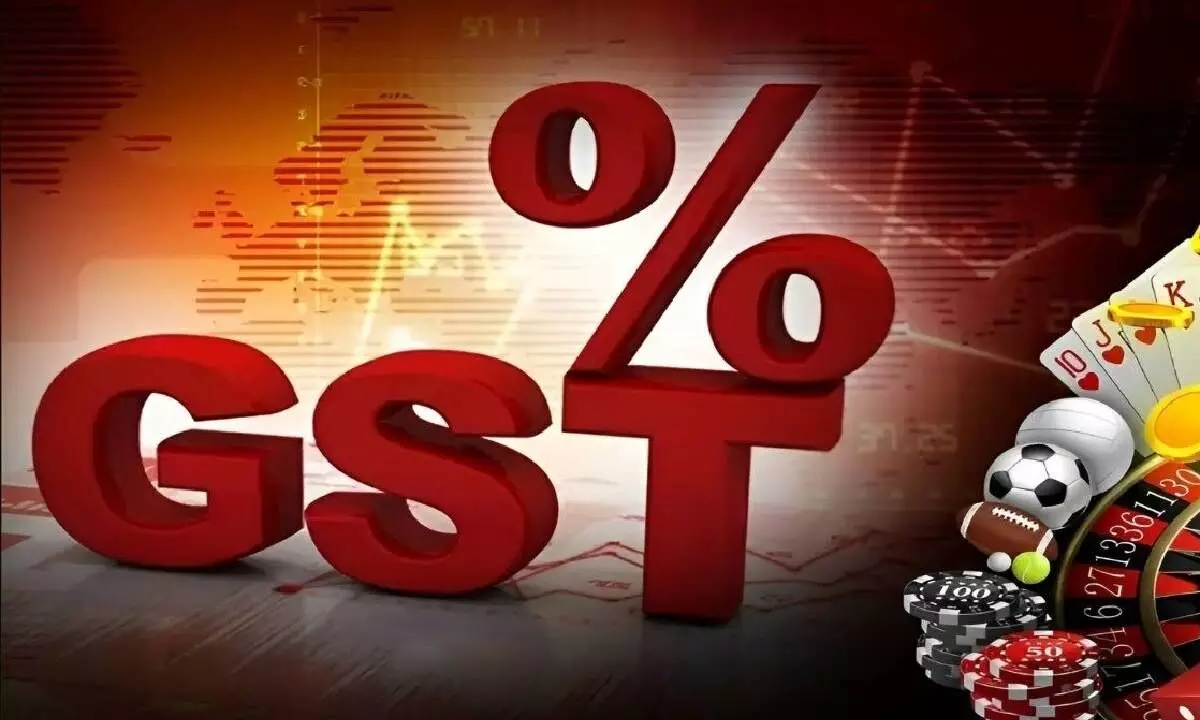GST hike on online gaming sector will discourage potential investments
Several experts have raised alarms on this including former finance secretary Subhash Chandra Garg
image for illustrative purpose

New Delhi India's online gaming sector has experienced remarkable growth, with over 15 billion game downloads and a user base exceeding 500 million in 2022.
The industry made a significant contribution of Rs 20 billion to the government's exchequer in 2020, and this figure is expected to reach Rs 35-50 billion by 2025.
However, a recent Deloitte report warns of a potential decline of up to 72.45 per cent in GST revenues owing to the GST Council’s decision to increase the tax rate on online gaming from 18 per cent GST on Gross Gaming Revenue (GGR) or platform fee to 28 per cent GST on Contest Entry Amount (CEA) or full face value of player contribution to games.
This staggering 1100 per cent tax burden hike is anticipated to discourage potential investments, stifle innovation, and deter players from accessing legitimate gaming platforms that abide by regulations and pay taxes.
Several experts have raised alarms on this including former finance secretary Subhash Chandra Garg, who says that “Imposing higher taxes on online gaming will encourage offshore gaming platforms, ultimately squeezing out legitimate businesses.”
This potential shift of consumers towards illegal and offshore gaming platforms is worrisome as they also lack proper consumer protection, responsible gaming practices, and fraud prevention measures, making players susceptible to various risks.
“India has always had an ambivalent attitude towards adoption of new technology. Digital entertainment, gaming and sports are the future of mankind. The Council should recognize the adverse consequences of its decision and adopt a more sensible and reasonable policy. If the online gaming industry shuts down or relocates out of the country, tax revenues will significantly decrease. Even if the industry survives but is heavily restricted, the government will only manage to maintain current revenue levels.” Garg added.
This move would inadvertently encourage offshore platforms to capitalise on the situation while legitimate businesses would crumble under a declining user base and the burden of increased financial obligations.
The shift of consumers to illegal and offshore gaming platforms is a significant threat not only to legitimate businesses but also to the government's revenues.
“The short-term repercussions are evident through the decline of stocks such as Delta Crop, Nazara Technologies, OnMobile Global, and Zensar Technologies, while the long-term effects hinge on the survival of key players”, says Swapan Sarkar, Chartered Accountant, Proprietor, Sarkar & Associates. This decision contradicts the more progressive regulations implemented by the central government to promote the online gaming sector. The Ministry of Electronics and Information Technology (MeitY) has been actively working to establish clear rules and regulations for online gaming to ensure consumer protection and industry growth go hand in hand.
The 2023 Budget also introduced a 30 per cent tax on net winnings from online games along with the removal of the minimum threshold limit for calculating the tax deducted at source. The Finance Bill had also hinted at separate tax structures for "games of skill" and "games of chance" in the future, however the GST Council seems to have paid no heed.

